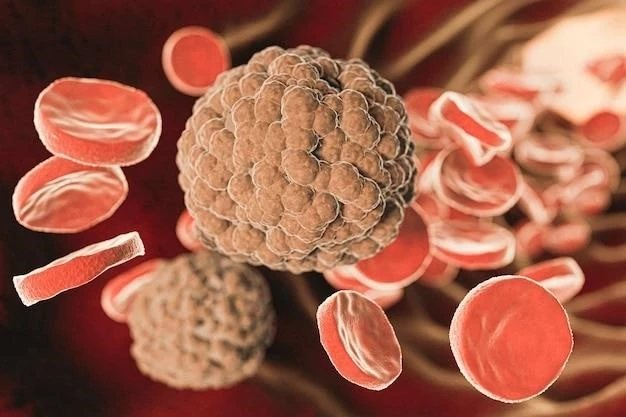Malignant rhabdoid tumor (MRT) is a rare childhood tumor that starts in the kidneys and other soft tissues‚ and can grow in the brain․ Dana-Farber/Boston Children’s Hospital offers expert diagnosis and treatment‚ including surgery‚ chemotherapy‚ and stem cell transplant․
Malignant rhabdoid tumor (MRT) is a rare and highly aggressive childhood tumor that most commonly originates in the kidneys or other soft tissues․ It can also develop in the central nervous system․ These tumors are fast-growing and have a tendency to spread to other parts of the body quickly‚ making them difficult to treat․ MRTs are known for their rapid disease progression‚ poor prognosis‚ and high rates of recurrence․
Causes and Risk Factors
Malignant rhabdoid tumors (MRT) are primarily found in young children and infants under 3 years of age․ These aggressive tumors may occur in the kidneys‚ soft tissues‚ and central nervous system․ Gene mutations‚ particularly in the SMARCB1 gene‚ play a significant role in the development of rhabdoid tumors․ Factors contributing to MRT include rapid tumor growth‚ high recurrence rates‚ and poor survival outcomes․
Definition and Characteristics
Malignant rhabdoid tumor (MRT) is a rare and highly aggressive childhood tumor that typically originates in the kidneys or soft tissues and can also develop in the central nervous system․ These tumors are known for their fast growth and propensity to metastasize rapidly to other parts of the body․ MRTs often exhibit poor treatment response and have a high risk of recurrence․
Rhabdoid Tumor Predisposition Syndrome (RTPS)
Rhabdoid tumor predisposition syndrome (RTPS) is characterized by a significantly increased risk of developing rare and highly aggressive malignant rhabdoid tumors‚ predominantly affecting infants and children under three years old․ These tumors can occur in various anatomical locations‚ with a high genetic component linked to the SMARCB1 gene mutation․
Signs and Manifestations
The symptoms of rhabdoid tumors can vary depending on their location in the body․ Patients may experience pain‚ swelling‚ and other signs related to the affected area․ In the brain‚ symptoms like headaches and neurological deficits may manifest․ Early diagnosis through imaging studies and biopsies is crucial for proper treatment planning․
Treatment Options
Treatment for malignant rhabdoid tumors typically involves a combination of surgery‚ chemotherapy‚ and radiation therapy to target the aggressive nature of the cancer․ Additional approaches may include stem cell transplants and targeted therapies to improve outcomes and reduce the risk of recurrence․
Therapeutic Approaches
Therapeutic approaches for treating rhabdoid tumors typically involve a multidisciplinary strategy․ This may include surgery to remove the tumor‚ followed by chemotherapy to eradicate any remaining cancer cells․ Radiation therapy may be used to target specific areas‚ while stem cell transplant and targeted therapies are being explored as potential avenues for improving treatment outcomes․
Prognosis and Survival Rates
Malignant rhabdoid tumor (MRT) is a rare and highly malignant neoplasm that primarily affects young children under 3 years old․ The aggressive nature and rapid growth of these tumors lead to poor survival rates and high levels of recurrence‚ making treatment and management challenging for healthcare professionals․
Disease Progression and Outcomes
Malignant rhabdoid tumors exhibit rapid disease progression and poor outcomes due to their aggressive nature and high tendency for metastasis․ Patients with rhabdoid tumors often face challenges in treatment response‚ leading to a complex clinical course with significant implications for prognosis and survival rates․

Research and Ongoing Studies
Research on malignant rhabdoid tumors focuses on understanding the genetic mutations‚ treatment resistance mechanisms‚ and developing targeted therapies․ Ongoing studies aim to improve early detection methods and enhance treatment strategies to combat the aggressive nature of these tumors․
Advancements in Understanding
Research on malignant rhabdoid tumors has made significant strides in understanding the genetic mutations associated with these aggressive cancers․ Advances in identifying treatment resistance mechanisms and exploring targeted therapies have contributed to enhancing the therapeutic options available for patients․ Ongoing studies aim to further unravel the complexities of rhabdoid tumors and improve clinical outcomes․

Impact on Pediatric Population
Malignant rhabdoid tumor (MRT) has a profound impact on the pediatric population‚ primarily affecting infants and young children․ The aggressive nature and high recurrence rates of these tumors pose significant challenges in treatment and management for healthcare providers and families of affected children․
Effect on Children and Infants
Malignant rhabdoid tumors have a significant impact on children and infants‚ especially those under three years old․ The aggressive nature and rapid growth of these tumors present challenges in diagnosis and treatment‚ affecting the quality of life for young patients and their families․ Understanding the specific impact on this vulnerable population is crucial for providing comprehensive care and support․
